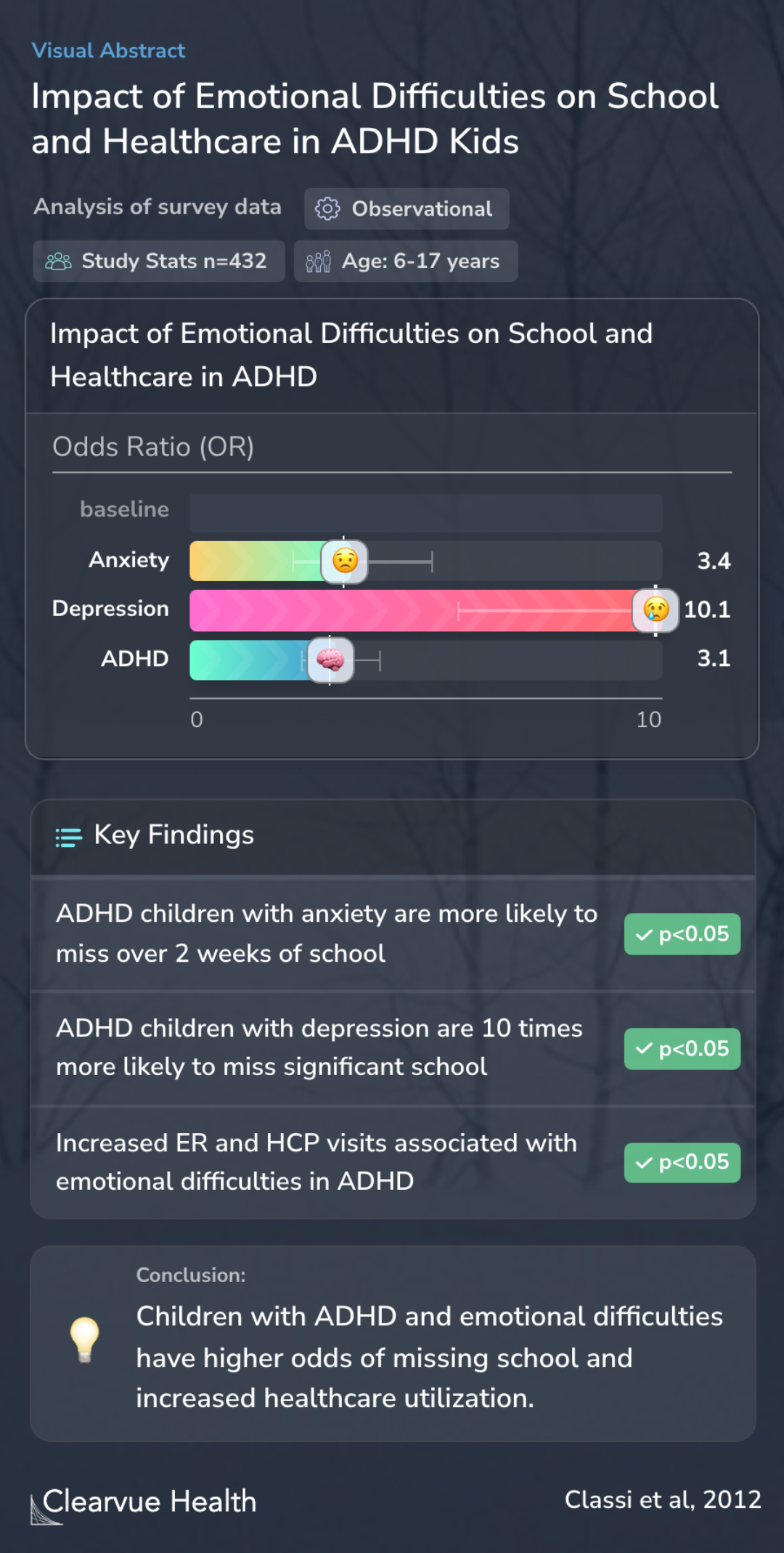Social and emotional difficulties in children with ADHD and the impact on school attendance and healthcare utilization
Impact of Emotional Difficulties on School and Healthcare in ADHD Kids
Classi P, Milton D, Ward S, Sarsour K, Johnston J

Objectives
The study aimed to understand how having both social and emotional challenges alongside ADHD affects children's school attendance and their need for medical care. In simpler terms, the researchers wanted to see if kids with ADHD who also feel very sad or anxious miss more school and go to the doctor more often than kids with just ADHD.
The objective of this study was to examine the impact of co-occurring social and emotional difficulties on missed school days and healthcare utilization among children with attention deficit/hyperactivity disorder (ADHD).
Methods
The study looked at information from a big survey done in the U.S. in 2007. This survey asked parents about their children's health, including if they have ADHD, and their emotional well-being, like if they feel sad or scared often. The researchers used a special kind of math called logistic regression to determine if there's a link between these emotional problems and missing school or needing more healthcare.
Data were from the 2007 U.S. National Health Interview Survey (NHIS) and were based on parental proxy responses to questions in the Sample Child Core, which includes questions on demographics, health, healthcare treatment, and social and emotional status as measured by questions about de...
Results
The study found out that kids with ADHD who also have emotional problems like feeling very anxious or sad are more likely to miss a lot of school and need to see doctors or go to the hospital more often. Specifically, kids with ADHD and anxiety might miss over two weeks of school, and those with depression are even more likely to miss school. These kids also end up going to the emergency room or seeing healthcare providers more often because of their emotional difficulties.
Of the 5896 children aged 6-17 years in the 2007 NHIS, 432 (7.3%) had ADHD, based on parental report. Children with ADHD and comorbid depression, anxiety, or phobias had significantly greater odds of experiencing > 2 weeks of missed school days, ≥ 6 visits to a healthcare provider (HCP),...
Conclusions
In summary, the study shows that children with ADHD who also face emotional challenges are more likely to miss school and use healthcare services more frequently. This finding is important because it highlights the need to pay attention to not just ADHD but also the emotional well-being of these children to help them do better in school and stay healthy.
In children with ADHD, the presence of social and emotional problems resulted in greater odds of missed school days and healthcare utilization. These findings should be viewed in light of the limited nature of the parent-report measures used to assess social and emotional problems.
Key Takeaways
Context
ADHD is known to make school harder for kids in various ways. For example, children with the inattentive type of ADHD may struggle with remembering things, which can affect how they do in school. Teenagers with ADHD might act out or have a hard time staying focused, which also makes learning difficult.
Additionally, studies have shown that certain therapies, like Cognitive Behavioral Therapy (CBT), can help children with ADHD improve their planning skills and reduce negative behaviors, which can make a big difference in their school performance. Parents getting involved in these therapy sessions can also boost their effectiveness, making it a team effort to support the child's success in school.